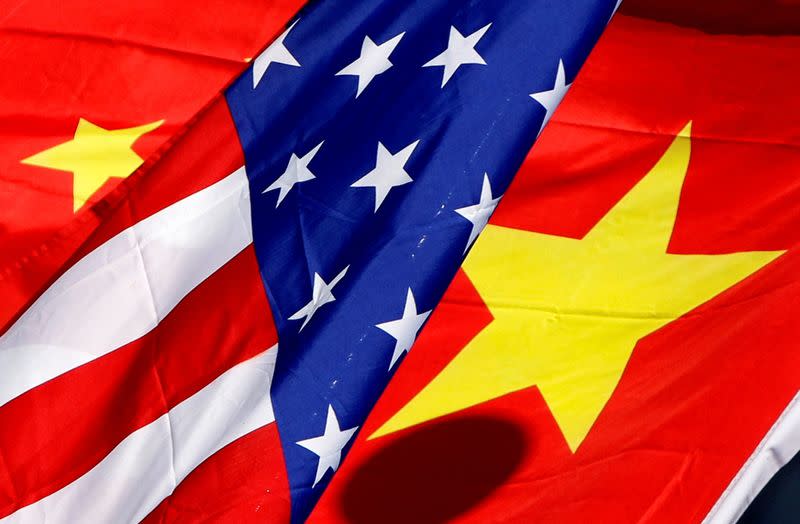The US could unveil new China tariffs on strategic sectors such as electric vehicles as soon as next week, sources have said.
The announcement is likely to maintain existing tariff levies, two sources familiar with the matter said. And specific sectors like computer chips and solar panels were set to be included, one said.
The news could be revealed as soon as Tuesday, but it could also be pushed back, according to one of the people who spoke to Reuters.
ALSO SEE: New Huawei Phone Shows US Sanctions May Be Working
Details on the precise value or categories of tariffs that would be imposed were sketchy, but the administration was said to have zeroed in on areas of interest within strategic competitive and national security areas, one of the people said.
The US Trade Representative’s office made their recommendations to the White House weeks ago but a final announcement was delayed as the package was debated internally, according to one of the sources and an additional person familiar with the matter.
Biden, a Democrat seeking re-election in November, is looking to contrast his approach with that of Republican candidate Donald Trump, who has proposed across-the-board tariffs that White House officials see as too blunt and prone to spark inflation.
The White House and the office of the US Trade Representative declined to comment.
The measures could invite retaliation from China at a time of heightened tensions between the world’s two biggest economies. Trump’s broader imposition of tariffs during his 2017-2021 presidency prompted China’s retaliation with its own levies.
Era of strategic competition
Biden has said he does not want a trade war with China despite having said the two countries have entered a new paradigm of competition.
Both 2024 candidates have sharply departed from the free-trade consensus that once reigned in Washington, a period capped by China’s joining the World Trade Organization in 2001.
In 2022, Biden launched a review of the Trump-era policy under Section 301 of the US trade law. Last month, he called for sharply higher US tariffs on Chinese metal products but the targeted products were narrow in range, estimated at more than $1 billion of steel and aluminum products, a US official said.
Biden also announced launching an investigation into Chinese trade practices across the shipbuilding, maritime and logistics sectors, a process that could lead to more tariffs.
The Biden administration has also been pressuring its neighbour Mexico to prohibit China from selling its metal products to the United States indirectly from there.
China has said the tariff measures are counter-productive and inflict harm on the US and global economy.
- Reuters with additional editing by Jim Pollard
ALSO SEE:
TikTok, Bytedance File Legal Challenge Against Divestment Law
US Warns it Could Ban Connected Chinese Electric Vehicles
US May Deny China, Russia Access to Advanced AI Models
US Scraps Chipmakers’ Export Licences to Sell to China’s Huawei
US Lawmakers’ Fury Over Huawei’s Intel AI Chip-Powered Laptop
US ‘Pressured’ Mexico to Reel Back China EV-Maker Incentives
Trade War Heating Up: China Hits Back After Biden Boosts Tariffs
US Auto Sector ‘Faces Extinction’ From Chinese Mexico Imports
Raimondo Says Chinese EVs Are a National Security Risk For US, EU
























